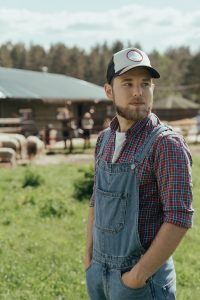Social farming therapy
Persistent mental disorders
Traditional therapies for people with psychological or psychiatric disorders are not always effective. Recovery remains all the more complex as patients are prone to social exclusion. The feeling of not belonging to the system is also found among young people with serious academic difficulties. And, among those with drug or crime problems. Helping them becomes paramount. Fragile mental health brings with it other physical, social, and professional problems.
The alternative to failing social services then seems to be found in social agriculture.

What is social farming?
Aimed at vulnerable people, social agriculture is seen as a practice that improves the mental and physical health of volunteers, as well as their social and educational capacities. There are many care farms in Europe, particularly in the Netherlands. There, in 2019, 10% of children excluded from the school system will have benefited from an educational program in the country’s 1,000 schools. In the United Kingdom, although there are only 250 such farms, the Social Farms & Gardens association contributes to the development of these programs.
Therapy is therefore carried out through horticultural and agricultural activities. For example, at Pathway’s English farm, volunteers come twice a week to feed the animals and cut hedges. The Rylands farm even offers vocational training in agriculture.
Therapeutic programs
These outdoor rehabilitation programs provide patients with a welcoming and inclusive environment for recovery and personal growth. The therapeutic benefits are demonstrated by research and the experiences of the patients themselves. For example, a study from the Netherlands showed that the non-institutional setting and the use of the term “voluntary” improve the self-perception of the beneficiaries. Thanks to the actions carried out on the farm, they then feel useful and responsible. The socialization that they carry out with people who have a similar experience to their own helps them to overcome their isolation. In the same way, they prepare their social reintegration by developing social skills and a sense of belonging to the community.
Social agriculture also has an educational purpose. Since 100% of the out-of-school youth who attended the Future Roots program at Rylands Farm came back more motivated according to their education. Also, 89% improved their communication skills, 44% became more diligent and 73% continued their schooling.
Sources: Positive News; Pathways Care Farm; Sciences Direct
Photo Credits: Quang Nguyen Vinh / Pexels;Cottondro / Pexels
Encourage us if you like positive stories!





